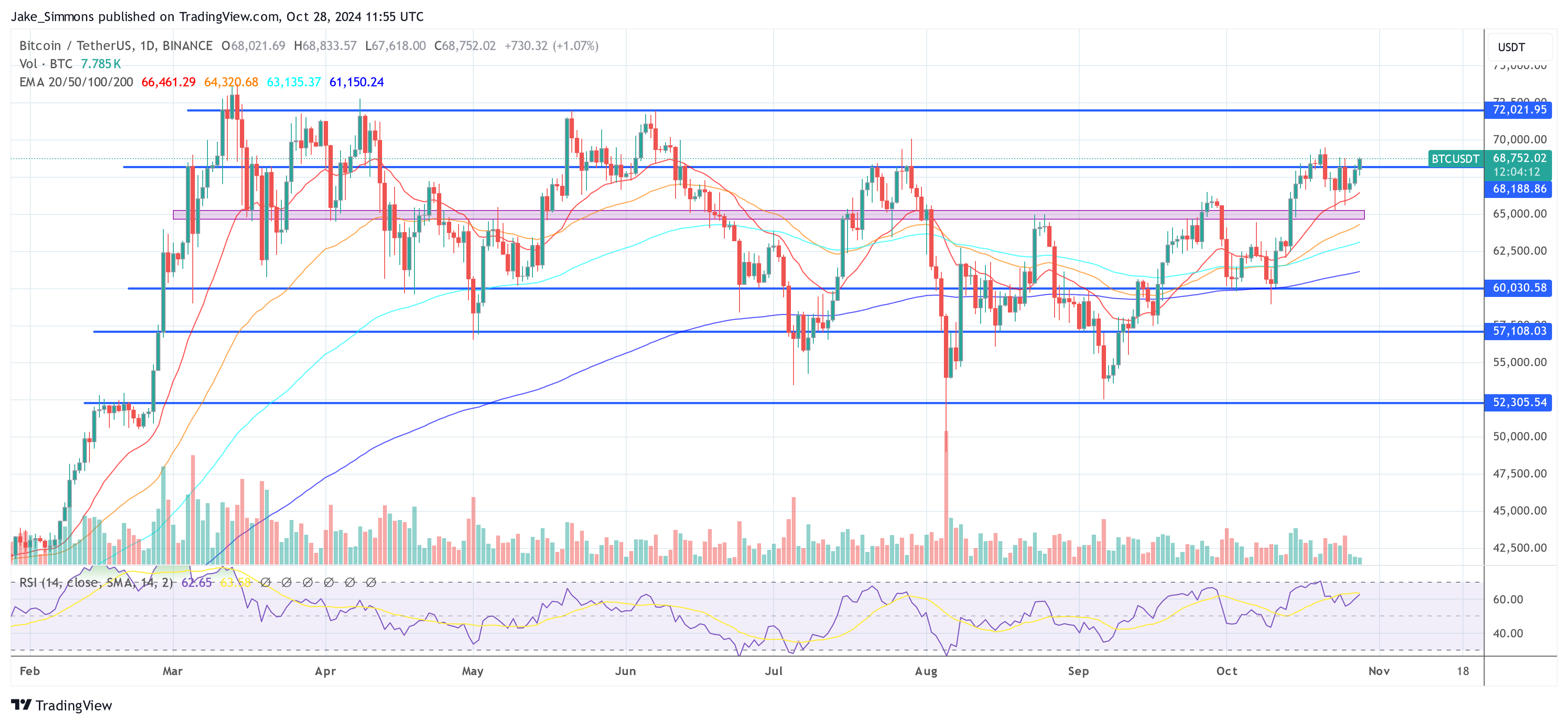In a new YouTube video titled “There Is No ETF Paper Bitcoin,” Fred Krueger, an investor at the crypto hedge fund 2718.fund, delved into the growing concerns surrounding US spot Bitcoin Exchange-Traded Funds (ETFs) and their impact on the cryptocurrency’s price. Krueger aimed to dispel the fear, uncertainty, and doubt (FUD) that have been circulating about “paper Bitcoin”—the notion that ETFs might be selling Bitcoin they do not actually possess—and to explain why Bitcoin’s price has not surged as dramatically as some might expect, despite significant ETF purchases.
Krueger began his analysis by acknowledging the prevalent skepticism in the market. “There’s all this paper Bitcoin, and ETFs don’t really have the Bitcoin, and if they were buying all this Bitcoin, how come Bitcoin price is not higher?” he stated, encapsulating the core concerns of many investors.
Historically, the concept of “paper Bitcoin” has been associated with exchanges that sold Bitcoin to customers without actually possessing the underlying assets. Krueger highlighted several high-profile instances where this practice led to significant losses for investors. He cited the case of Mt. Gox.
Another example he provided was QuadrigaCX, a Canadian exchange that collapsed under mysterious circumstances. Founder Gerald Cotten allegedly died in India, taking with him the private keys to the exchange’s cold wallets, effectively locking away customer funds. “A lot of Canadians lost all their Bitcoin on this Quad exchange,” Krueger noted.
Are “ETF Paper Bitcoin” Real?
These historical events have contributed to the current apprehension about ETFs and the possibility that they might be engaging in similar practices—selling Bitcoin they do not actually hold, thereby suppressing BTC’s price through artificial supply. However, Krueger argued that ETFs, particularly those managed by established financial institutions, operate under a fundamentally different framework compared to unregulated exchanges.
Focusing on two leading ETFs—IBIT, the BlackRock ETF, and FBTC, the Fidelity ETF—Krueger emphasized the stringent regulatory oversight governing these entities. “Both of these ETFs are subject to very strict regulatory oversight, including the SEC but also other agencies in the US,” he stated. This comprehensive oversight includes requirements for complete transparency, regular audits, and the use of third-party custodians for asset verification. “They literally have to get a receipt of an asset from a third-party custodian,” Krueger added.
In the case of IBIT, Coinbase serves as the third-party custodian. “Coinbase is itself a public company that is audited,” Krueger pointed out, noting that the public nature of Coinbase adds an additional layer of scrutiny and accountability. IBIT conducts audits of Coinbase, and both entities are subject to audits by the SEC and other regulatory bodies. For FBTC, custody is handled by Fidelity Digital Assets, a separate entity within Fidelity that specializes in the custody of digital assets, thereby ensuring specialized oversight and management.
“The issuers of IBIT and FBTC are BlackRock and Fidelity, two of the largest and oldest financial institutions, and they have a vested interest in maintaining their reputation,” Krueger asserted. “Their reputation is at stake, and this is a big deal,” he emphasized, suggesting that these institutions would not risk their credibility by engaging in the sale of non-existent Bitcoin.
Krueger contrasted BlackRock with entities like QuadrigaCX to underscore the disparity in regulatory compliance and operational scale. “BlackRock is highly regulated […] BlackRock has a robust corporate governance structure with committees for audit, risk, and compliance and very extensive internal controls,” Krueger added.
Addressing the core concern about ETFs holding “paper Bitcoin,” Krueger provided specific data to refute this notion. “The reality is the ETFs have zero pure paper Bitcoin,” he stated unequivocally. He highlighted that IBIT holds approximately 403,000 actual Bitcoins, while FBTC holds about 185,000 actual Bitcoins. “Together, these two ETFs hold almost 3% of the world’s total Bitcoin, or 588,000 Bitcoins—I think it’s 2.9%,” he calculated.
Krueger acknowledged that some skeptics have attempted to analyze Bitcoin movement between specific dates to challenge these holdings. However, he emphasized that the facts are clear and verifiable. “We know how much Bitcoin these ETFs have; we know that it’s accounted for, and that’s a reality,” he insisted.
Turning to the question of why Bitcoin’s price has not increased more dramatically despite significant ETF inflows, Krueger offered a nuanced explanation. He noted that Bitcoin is, in fact, up by 60% since the introduction of the ETFs, translating to a $600 billion increase in market capitalization. This growth has been fueled by approximately $20 billion in net inflows into the ETFs, resulting in a price multiplier effect of about 30x. “That’s historically about normal, maybe a little on the low side but not terribly so,” he assessed.
Krueger attributed the moderation in Bitcoin’s price growth to substantial selling pressures from various sources. “There’s been a bunch of selling,” he explained. He detailed that Germany sold $3 billion worth of Bitcoin as well as Mt. Gox holdings. Additionally, FTX sold its GBTC (Grayscale Bitcoin Trust) stake earlier in the year, and the Digital Currency Group (DCG) sold assets to resolve lawsuits. “We had a lot of selling,” Krueger summarized.
Speculating on the potential impact absent these selling pressures, Krueger suggested that Bitcoin’s price could have been significantly higher. “We probably would be at $90k if there wasn’t any selling,” he posited.
At press time, BTC traded at $68,752.












